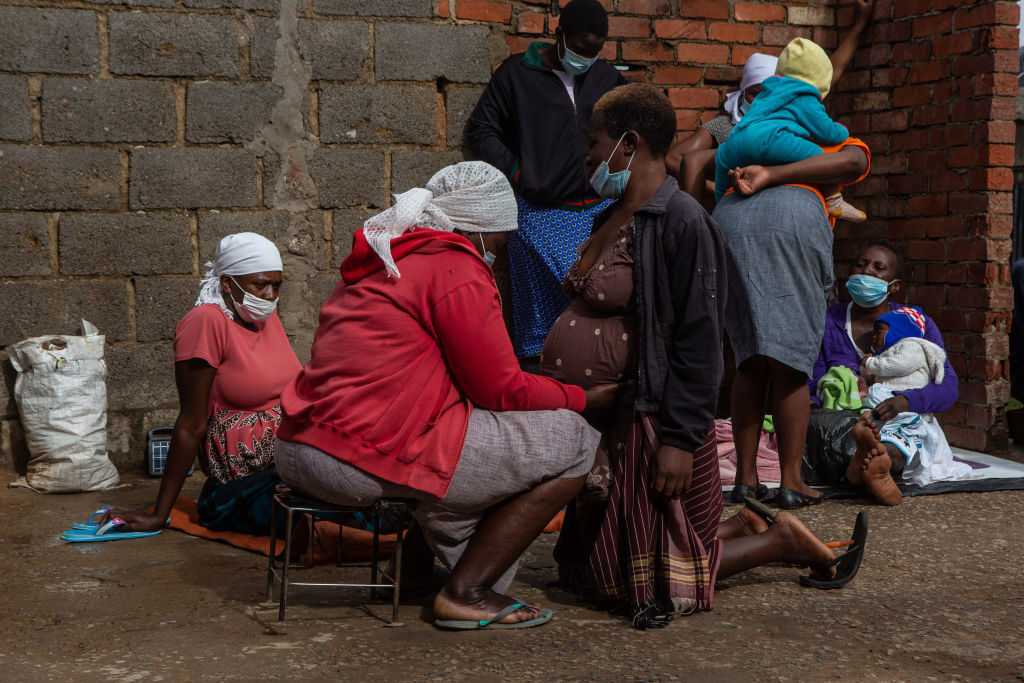ADF STAFF
Pregnant women who catch COVID-19 are in much greater danger than previously suspected, according to a new study that analyzed data collected from six African countries.
The study found that pregnant women with SARS-CoV-2, the virus that causes COVID-19, had double the risk of being admitted to the intensive care unit and four times the risk of dying in a hospital than pregnant women who did not have COVID-19.
Dr. Nadia Sam-Agudu, who works for the University of Maryland School of Medicine’s Institute of Human Virology and the Institute of Human Virology-Nigeria, was one of two lead authors of the study.
“We were not surprised by the findings that COVID-19 was associated with poor outcomes for pregnant women who were hospitalized,” she told ADF. “Available data from outside Africa and from clinical experience in our setting already clued us into that.
“What was surprising was the mortality rate. An astonishingly high 10% of pregnant SARS-CoV-2 infected women died, versus 5% of nonpregnant SARS-CoV-infected women and 2% of pregnant noninfected women.”
The study, published on June 8 in the Clinical Infectious Diseases journal, was directed by the African Forum for Research and Education in Health Research Collaboration on COVID-19 and Pregnancy.
It analyzed data on 1,315 women who were hospitalized in the Democratic Republic of the Congo, Ghana, Kenya, Nigeria, South Africa and Uganda, including 510 pregnant women with COVID-19, 403 nonpregnant women with COVID-19 and 402 pregnant women without COVID-19.
About 32% of pregnant women with COVID-19 needed in-hospital oxygen therapy compared to 16% of pregnant women without COVID-19.
About 19% of pregnant women with COVID-19 were admitted to the ICU, compared to 6% of pregnant women who did not have COVID-19.
“Maternal mortality is already unacceptably high in many African countries, due to birth complications including maternal hemorrhage, infection, and high blood pressure and related complications,” Sam-Agudu said. “Much of the excess mortality from these conditions is related to poor access to, and availability of, quality clinical care and medical interventions.
“We cannot afford to add COVID-19 to these maternal conditions.”
Women with other risk factors such as diabetes, HIV, a history of tuberculosis or sickle cell disease also were at greater risk for severe COVID-19.
Dr. Eduard Langenegger, maternal fetal medicine specialist at Tygerberg Hospital and Stellenbosch University in South Africa, was the study’s obstetric principal investigator.
“Pregnant women in the third trimester were more severely affected than women during early pregnancy when they developed COVID-19 pneumonia,” he said in a statement. “This is probably due to the impact of the uterus and growing baby on the mother’s respiratory function.”
Early in the pandemic, Tygerberg Hospital established an obstetrics COVID-19 unit dedicated to managing pregnant women with complicated cases of COVID-19.
“Nearly a third of women admitted with COVID-19 pneumonia had life-threatening disease and required respiratory support and critical care, and sadly many died,” Langenegger said.
“COVID-19 also affects the unborn baby, and they are more likely to be born prematurely and develop other complications. When the mother becomes unstable, her unborn baby can develop hypoxia [low oxygen levels], which can result in brain damage and intra-uterine death.”
Sam-Agudu urged pregnant women in Africa to attend antenatal care to ensure that a skilled health worker is responsible for the pregnancy, delivery and post-delivery.
She also recommends that pregnant women continue to use N95-grade masks to protect themselves and their infants and avoid large gatherings and visitors in their homes during pregnancy.
“The pandemic is not over,” she said. “While COVID-19 appears to not affect African countries as much as those in Europe and North America, our study has shown that pregnant African women who require hospitalization are more likely to do poorly.”

